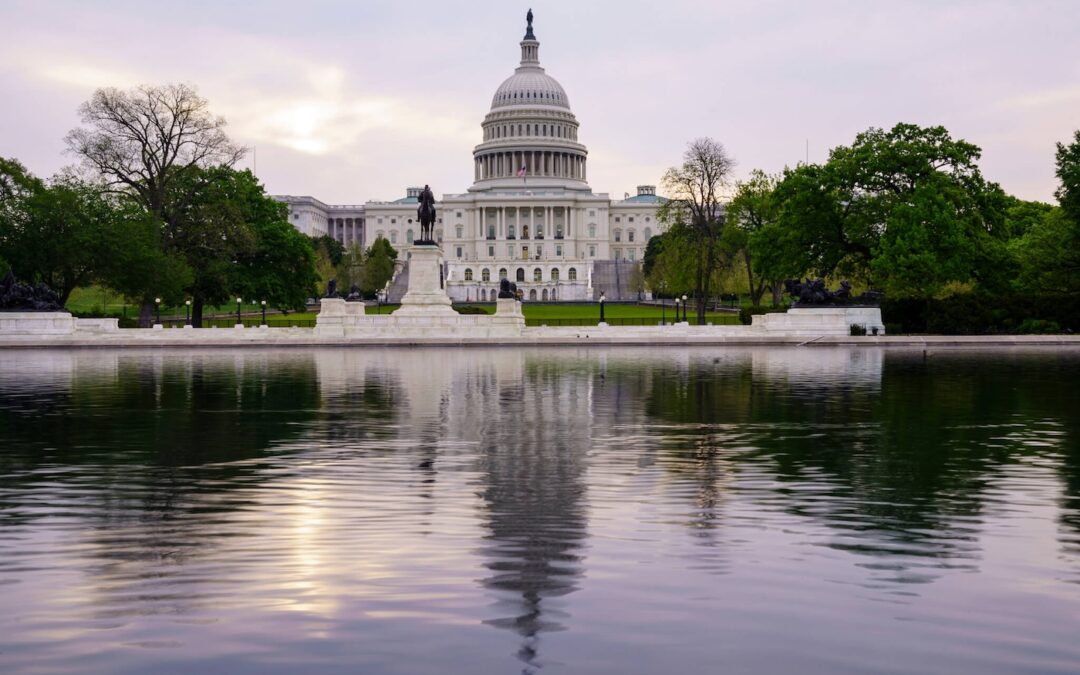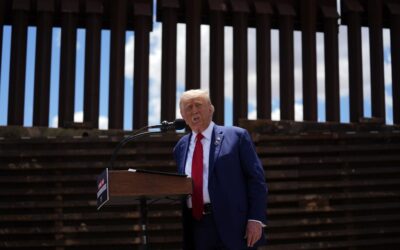
Democratic presidential nominee Vice President Kamala Harris waves as she steps on stage to address a crowd, Wednesday, Sept. 4, 2024, during a campaign stop, in North Hampton, N.H. (AP Photo/Steven Senne)
Harris has proposed expanding a tax deduction for costs that are incurred while starting a business, creating a new fund that would allow the country’s smallest banks to cover the interest accrued on loans to new businesses, and more.
Kamala Harris on Wednesday unveiled several new economic policies aimed at supporting entrepreneurs and small business owners by reducing their expenses and increasing their access to capital.
Harris’ proposal involves expanding a tax deduction for costs that are incurred while starting a business in an effort to ease the financial burden on small business owners and incentivize more entrepreneurs to start businesses.
According to the Congressional Research Service, small businesses are currently granted a $5,000 deduction for expenses incurred during their first year of operation—Harris wants to raise that threshold to $50,000. This is much closer to the $40,000 the average small business owner puts into starting their business.
“As President, one of my highest priorities will be to strengthen America’s small businesses,” Harris said at an event in New Hampshire on Wednesday. “So, first we’re gonna help more small businesses and innovators get off the ground.”
Harris also plans to make it easier for small business owners to file their taxes by working to implement a standard deduction in the tax code that can save the smallest businesses time and money by simplifying the filing process.
The vice president also announced that she plans to direct her administration to launch an initiative aimed at modernizing outdated regulations that make it more difficult for small businesses and entrepreneurs to apply and receive federal funding. She said that her administration will encourage state and local governments to do the same.
Harris also proposed the creation of a new fund that would allow the country’s smallest banks to cover the interest accrued on loans to new businesses. There is no word yet on the size of this fund, but Harris called for more funding for these banks on Wednesday.
Harris said she wants to “take away some of the bureaucracy” involved in being a small business owner to ultimately “make it easier for people to actually do something that’s going to benefit our entire economy.”
As vice president, Harris has worked to provide funding to these banks. Specifically, she has promoted Community Development Financial Institutions (CDFIs), which provide capital to low-income communities and families that are traditionally ignored by more traditional lenders.
Deputy Treasury Secretary Wally Adeyemo told CNN that CDFIs are important as they give new businesses with no financial histories a leg up.
“Some new businesses go to seven different banks to try to get a loan, but they can’t get one because they don’t have a three-year track record,” Adeyemo said.
Interest rates for small businesses have also risen particularly high in recent years, making it all the more difficult for small businesses to get started.
“Ultimately the cost of capital is going to be something that matters a lot,” Adeyemo added.
Harris plans to re-capitalize and expand the Treasury Department’s State Small Business Credit Initiative (SSBCI), as well. This initiative prioritizes entrepreneurs and small business owners in rural America, middle America, and underserved communities.
A Harris-Walz administration also plans to ensure that more funding goes toward the Rural Partners Network, which was launched by the Biden-Harris administration; this network aims to expand rural prosperity through job creation, infrastructure development, and community improvement.
Harris additionally announced that if elected, her administration will work to ensure that contract opportunities to provide goods and services to the federal government—which have historically gone to the largest businesses—will be expanded to smaller businesses.
These proposals are part of Harris’ larger economic agenda focused on middle- and working-class voters.
“We know a strong middle class has always been critical to America’s success. And building that middle class will be a defining goal of my presidency. This is personal for me. The middle class is where I come from,” Harris said in her speech at the Democratic National Convention (DNC) last month.
Harris also announced on Wednesday that she aims to surpass President Biden’s 19 million new businesses created during his term as president—with a goal of 25 million new businesses being formed in her first term.
Harris also sought to contrast herself with former president Donald Trump during her speech.
She argued that the tax revenue gained by rolling back certain provisions of Trump’s 2017 Tax Cuts and Jobs Act should be used to fund community investments and other projects that affect Americans more directly. The tax cuts in the 2017 law primarily benefited the ultra-wealthy and corporations.
One of Harris’ advisors told CNN that the federal government should “use those expiring tax cuts to get at issues that affect the bottom line for the average American.”
The vice president wants to roll back these tax cuts and implement “common-sense tax reforms for corporations and the very wealthy,” the advisor said.
Like Biden, Harris also supports a billionaire minimum income tax and wants to increase the corporate tax rate to 28%. She also wants to quadruple the tax on stock buybacks to ensure that the wealthiest Americans pay their fair share.
Harris emphasized during her speech that no one earning less than $400,000 per year would pay more in taxes, and that 99% of Americans will pay the same tax rate on long-term capital gains as they do now. For Americans who earn $1 million or more per year, the tax rate on their long-term capital gains will increase from 20% to 28% under Harris’ proposal.
“This approach strikes the right balance,” a statement from the Harris-Walz campaign reads. “It would make our tax system fairer and responsibly raise revenue to reduce the deficit and fiscal risks, while maintaining the longstanding incentive in our tax system to invest in innovation and long-term investments that drive American growth.”
“Trump’s economic agenda would ignite inflation…trigger a recession by mid-2025, cost more than three million jobs, and add a percentage point to inflation,” the statement goes on. “As president, he left small businesses in the lurch during their time of need in the pandemic, instead helping big and well-connected corporations get funding more easily. We can’t go back to Trump’s failed approach.”

Wisconsin will get hit hardest from Trump’s trade war, analysis shows
The other 49 states have between 1% to 8% of their labor force working in industries getting hit by retaliatory tariffs. Nearly 10% of the Wisconsin...

Opinion: New year, new priorities from Congress? Or more of the same?
Opportunity Wisconsin calls on the state’s Republican Congressional delegation to prioritize Wisconsin families in 2025, though their record casts...

Sick of hidden fees on concert tickets and hotel stays? A new federal rule bans them.
Now, live event businesses and hotels must clearly list their prices in both their advertising and pricing information. American consumers on...

Opinion: I asked Congressman Bryan Steil to fight for fair taxes. Will he listen?
A Wisconsin advocate shares her experience advocating for fair taxes during her visit to Washington, DC. Recently, I had the opportunity to join...




